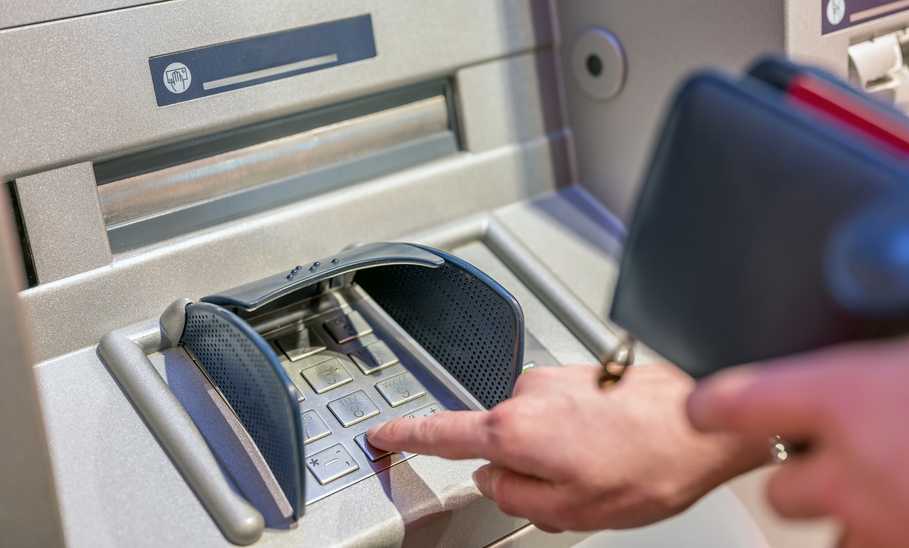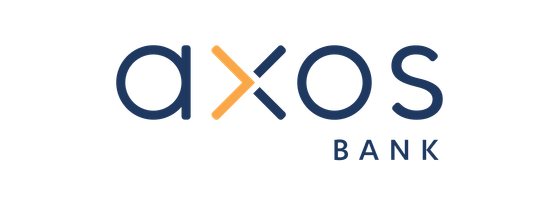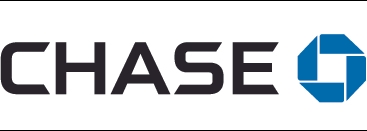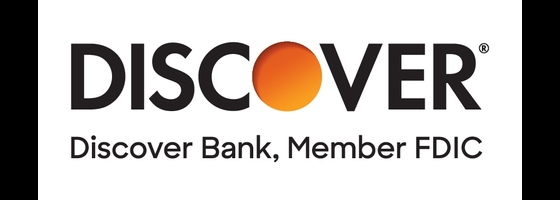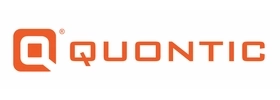When you need cash, the last thing you want to do is drive or walk around searching for a machine that won’t charge you fees for accessing your money. Luckily, most banks have large networks of fee-free ATMs that make it easier to get your money—and many even reimburse out-of-network ATM fees.
We researched the top-rated banks that offer plenty of in-network ATMs and/or reimburse out-of-network ATM fees for customers. Read on to learn about the best banks to avoid ATM fees and the other perks these financial institutions offer to savvy banking customers.
Our recommendations
Best for: Budgeting
Best for: Budgeting
Ally Spending Account
Out-of-network ATM reimbursement
Up to $10 per statement period
Ally has 43,000 fee-free ATMs and reimburses up to $10 in out-of-network ATM fees per statement cycle—and you can budget more easily using Ally’s spending buckets.
Ally Bank has more than 43,000 fee-free ATMs through the AllPoint network. If you need to use an out-of-network ATM, Ally will reimburse up to $10 in fees per statement cycle, so you don’t need to worry as much if you need cash and can’t find a fee-free option. With that reimbursement, you should be covered for about two out-of-network withdrawals.
In addition, Ally allows you to create up to 30 “spending buckets” to reserve money for specific upcoming expenses. This makes budgeting easier and can help you better understand where your money goes each month.
Ally offers a 0.10% to 0.25% annual percentage yield (APY) on its Spending Account, which is more than some checking accounts but lower than many on this list. However, Ally’s other Spending Account features include no monthly maintenance or overdraft fees, early direct deposit, and two overdraft protection options.
Pros:
- You can withdraw cash fee-free from over 43,000 AllPoint ATMs nationwide.
- Ally reimburses up to $10 per statement cycle for out-of-network ATM fees.
- You can create up to 30 spending buckets in your Ally Spending Account to reserve money for upcoming expenses.
Cons:
- The APY on an Ally Spending account is relatively low and dependent on balance.
Best for: APY
Best for: APY
Axos Rewards Checking
Out-of-network ATM reimbursement
Unlimited
With more than 91,000 fee-free ATMs and unlimited domestic ATM fee reimbursements, Axos makes it easy to withdraw cash without getting charged.
Axos has a network of more than 91,000 fee-free ATMs, the highest number out of the banks included in this list. In addition, Axos offers unlimited domestic ATM fee reimbursements, meaning if you need to use an out-of-network ATM you’ll get the fee repaid at the end of the billing cycle.
In addition to these perks, Axos offers up to 3.30% APY on its Rewards Checking account, which is extremely high for a checking account. This return can be difficult to obtain, however. To earn the full APY you need to meet the following set of requirements:
- Receive monthly direct deposits of $1,500 or more.
- Use your Axos Visa® Debit Card for a total of 10 transactions per month or link an account to activate Personal Finance Manager (PFM).
- Maintain an average daily balance of $2,500 or more in an Axos Invest Managed Portfolios Account and an Axos Invest Self-Directed Trading Account.
- Have an Axos consumer loan that is repaid from the checking account.
Those who cannot meet all eligibility requirements will earn a lower APY.
Other benefits of banking with Axos include 1% cash back on qualified purchases with the Cashback Checking account and a welcome bonus of up to 300 when you open a Rewards Checking account. Axos has a minimum deposit requirement of 50 to open a checking account.
Pros:
- You can withdraw cash fee-free from over 91,000 ATMs nationwide.
- Axos offers unlimited domestic ATM fee reimbursements.
- The Rewards Checking account offers up to 3.30% APY.
- The Cashback Checking account offers 1% cash back on qualified purchases.
- Axos offers a maximum $300 welcome bonus for opening a Rewards Checking account.
Cons:
- You must deposit a minimum of $50 to open an Axos Rewards Checking account.
- There are strict requirements to be eligible to earn the full APY.
Best for: welcome bonus
Best for: welcome bonus
Chase Secure Banking℠
Out-of-network ATM reimbursement
Up to four reimbursements per statement period
Monthly fee
$4.95 or $0; Avoid the monthly service fee when you have electronic deposits made into the account totaling $250 or more during each monthly statement period; $0 NSF Fee
Chase has over 15,000 fee-free ATMs and over 4,700 physical branches for in-person withdrawals—and the $100 welcome bonus is the icing on the cake.
With over 15,000 fee-free ATMs and over 4,700 physical branches, many Chase customers should be able to withdraw money at one of the bank’s cash machines or in person. Using other ATMs regularly is best avoided. Chase only reimburses up to four out-of-network ATM fees per statement period with the Premier Plus Checking account. And with its Total Checking and Secure Banking accounts, you get no reimbursement whatsoever for out-of-network withdrawals.
Chase also offers a $100 welcome bonus when you open a Secure Checking account. To earn the bonus, you must make 10 qualifying transactions within 60 days of opening the account. Transactions can be debit card purchases, ACH credits, online bill payments, or payments through Zelle.
Chase’s three checking accounts come with a monthly maintenance fee of up to 25, though it’s possible to waive those fees. For example, Chase Total Checking costs 12 per month or $0 if one of the following applies:
- $500 or more qualifying deposits are made into the account each month.
- There is a balance at the beginning of each day of $1,500 or more.
- There is an average beginning-day balance of $5,000 or more in this account and other linked qualifying Chase accounts.
Pros:
- Chase has more than 15,000 fee-free ATMs and more than 4,700 physical branches.
- The Chase Premier Plus Checking account reimburses up to four out-of-network ATM fees per statement period.
- Chase offers a $100 welcome bonus when you open a Secure Checking account.
Cons:
- You could pay a monthly maintenance fee of up to $25, depending on which checking account you choose.
- The Chase Total Checking and Secure Banking accounts do not reimburse out-of-network ATM fees.
- Chase pays very low APYs.
Best for: Online security
Best for: Online security
Discover® Checking Account
APY*
1% in cash back on up to $3,000 in debit card purchases each month
Out-of-network ATM reimbursement
No reimbursements
Discover’s 60,000+ fee-free ATMs make it easy to get cash without being charged and the bank also keeps you safe online with its free Online Privacy Protection program.
Discover has over 60,000 fee-free ATMs nationwide through the Allpoint and MoneyPass networks. However, Discover does not reimburse out-of-network ATM fees, so you’ll need to use an in-network machine to avoid paying a fee.
If you’re concerned about your online security, Discover could be a good fit. The free Online Privacy Protection program can be activated in the mobile app. Every 90 days, the program will scan select people-search websites for your personal information and alert you of its findings. You can then submit opt-out requests through Discover to get your information removed from the sites. This is a unique benefit that can be especially useful for people who have concerns about their personal information being out there.
Unfortunately, Discover doesn’t offer APY on its checking accounts, so there’s no opportunity to earn interest on your money. However, this isn’t as common a feature for checking accounts as it is for savings accounts and you may find that Discover’s benefits outweigh this potential downside.
Pros:
- You can withdraw cash fee-free from over 60,000 Allpoint or MoneyPass ATMs nationwide.
- Discover’s free Online Privacy Protection program helps remove your info from select people-search websites.
Cons:
- Discover does not reimburse ATM fees for cash withdrawals from ATMs outside the Allpoint or MoneyPass networks.
- Discover doesn’t pay interest on its checking accounts.
Best for: cash back
Best for: cash back
LendingClub Checking
Out-of-network ATM reimbursement
Unlimited
Not only does LendingClub have more than 37,000 fee-free ATMs, but it also reimburses out-of-network ATM fees with no exceptions—as well as offering 1% cash back on qualified purchases.
LendingClub has more than 37,000 fee-free ATMs through the MoneyPass or SUM networks. In addition, LendingClub reimburses ATM fees charged by other banks with no limits, meaning if you can’t find an in-network ATM, you can still withdraw cash and get a rebate at the end of the statement period.
One of the other benefits of choosing LendingClub is that you can get unlimited 1% cash back on qualified purchases with a Rewards Checking account. LendingClub claims that customers earn an average of 20 monthly benefits. However, there is a catch: To qualify for this offer you must maintain an average monthly balance of at least 2,500 or receive at least the same amount in qualifying direct deposits.
The Rewards Checking account also offers up to 0.15% APY, but to earn that amount you must have a balance of 100,000 or above, which is much more than many people keep in their checking accounts. If your balance is between 2,500 and 99,999, you’ll earn 0.10% APY; balances under 2,500 will not earn interest. In addition, LendingClub has a minimum initial deposit requirement of $25 to open an account.
Pros:
- You can withdraw cash fee-free from more than 37,000 MoneyPass or SUM ATM locations nationwide
- LendingClub rebates ATM fees charged by other banks
- The LendingClub Rewards Checking account offers unlimited 1% cash back on qualified purchases
Cons:
- LendingClub’s APY of 0.15% for balances of over $100,000 is relatively low compared to other checking accounts
- You must deposit a minimum of $25 to open a LendingClub Rewards Checking account
Best for: technology
Best for: technology
Quontic High Interest Checking
Out-of-network ATM reimbursement
No reimbursements
Welcome offer
Free pay ring (otherwise $29) upon account opening
Quontic customers can withdraw money fee-free from more than 90,000 ATMs, and the Quontic Pay Ring wearable device makes it easier to make purchases no matter where you are.
Quontic has more than 90,000 in-network ATMs nationwide, so there’s a good chance you’ll find an ATM with no fees. The bank doesn’t specify its policy on reimbursing out-of-network ATM fees, and, likely, these fees will not be refunded. However, with so many in-network machines, chances are good you’ll find one when you need to withdraw cash.
One of the most notable things about Quontic is its Pay Ring wearable device, which allows you to make payments without your debit card present. This makes it easy to make a purchase no matter where you are. The Pay Ring has a value of $29 but is offered for free when you open an account.
The Quontic Cash Rewards checking account offers 1% cash back on all eligible debit card purchases, so you can get money back on your everyday purchases. If you opt for a Quontic High Interest checking account, you can earn up to 1.10% APY no matter your balance. To open either of these Quontic checking accounts, you must deposit a minimum of $100.
Pros:
- You can withdraw cash fee-free from more than 90,000 ATMs nationwide.
- The Quontic Pay Ring wearable device allows you to make payments without your debit card.
- The Cash Rewards checking account offers 1% cash back on all eligible debit card purchases.
- You can earn up to 1.10% APY with a Quontic High Interest checking account.
Cons:
- You must deposit a minimum of $100 to open a Quontic checking account.
- Quontic doesn’t refund out-of-network ATM fees.
Best banks to avoid ATM fees compared
|
| | | Up to $10 per statement period | | | |
| | | | | | Up to $300 for Rewards Checking |
| | | Up to four reimbursements per statement period | | | |
| | | | | | |
| | | | | | |
| | | | | | |
Methodology
We checked which banks have the largest fee-free networks to determine the best banks for avoiding ATM fees. Then, we looked into whether these banks offered any rebate for out-of-network ATM fees. Once we narrowed our list, we examined each contender to see what made them stand out. The result of our research are the banks listed in this roundup.
More about banks to avoid ATM fees
Before choosing a bank, it’s important to understand how ATM fees work. Learn more about ATM fees, how to avoid them, and some alternatives to avoiding ATM fees.
What is an out-of-network ATM fee and cost?
Most banks have a network of ATMs you can withdraw from without paying any fees. But if you withdraw from an out-of-network ATM, meaning an ATM outside the bank’s network, you may be charged a third-party fee. In 2023, the average out-of-network ATM fee was $4.73, according to a Bankrate study. If you make a lot of cash withdrawals, these fees can add up quickly.
Ways to avoid out-of-network ATM fees
The best way to avoid out-of-network ATM fees is to only use in-network ATMs. Most banks make this easy by offering an ATM finder in their banking apps. All you need to do is open the app and search for ATMs near you.
If you’re in an area with no fee-free ATMs, you can still avoid fees if your bank reimburses out-of-network fees. Although you’ll pay the fee upfront, your bank will reimburse the money at the end of the statement period. Some banks that reimburse ATM fees may limit the dollar amount they reimburse each month or the number of transactions they reimburse, so it’s important to check if any restrictions apply.
How to get reimbursement for ATM fees
If your bank offers ATM fee reimbursement, there’s no need for any action on your part; the fees will be reimbursed automatically.
Alternatives to bank accounts with no ATM fees
Although most banks have a network of fee-free ATMs, it’s good to know about some alternatives to help you avoid fees while accessing your cash. Here are a few options:
- Point-of-sale cash back: Many grocery stores, pharmacies, gas stations, and other stores offer cash back when you pay with your debit card. If you select cash back, the cashier will give you the requested amount in cash, which will be charged to your debit card with no fee.
- Pay digitally: Many service professionals will accept payment via digital apps like Venmo, Zelle, or CashApp. Paying this way will help you avoid fees and be more convenient than using an ATM for cash.
- Make fewer withdrawals: Plan ahead and take out a larger sum of cash if you have to use an out-of-network ATM rather than making several withdrawals and incurring multiple fees.
TIME Stamp: Avoid unnecessary ATM fees by choosing the right bank
Choosing the right bank can take time since each has different benefits and offerings. If you frequently withdraw cash, the bank you choose should have a wide network of fee-free ATMs while potentially offering rebates on out-of-network ATM fees. The banks listed here all have a lot to offer, but they’re especially notable if you want to avoid paying unnecessary ATM fees.
Frequently asked questions (FAQs)
How much do banks typically charge for ATM fees?
The exact fee will vary by bank. According to Bank Rate, the average ATM fee in 2023 was $4.73.
How do I get around the daily ATM limit?
Banks place a limit on the amount of money customers can withdraw from an ATM per day. Although the exact amount will vary from bank to bank, the limit is often between $300 and $1,000. But what happens if you need more cash than your limit will allow?
There are several ways to get around the daily ATM limit imposed by your bank. Firstly, you can ask the bank whether it will increase your limit. There’s no guarantee it will, but it’s worth asking, especially if you’ve been a loyal customer for several years. Alternatively, if your bank has physical branches, you can visit one to withdraw a larger amount. Finally, some banks may allow you to get a cash advance using your debit or credit card if you need access to funds quickly. (Note that cash advances generally incur fees, so check before using this option.)
Which bank provides unlimited free ATM transactions?
Several banks offer unlimited reimbursements for out-of-network ATM fees, including Axos, LendingClub, and Needham Bank.
The information presented here is created by TIME Stamped and overseen by TIME editorial staff. To learn more, see our About Us page.
